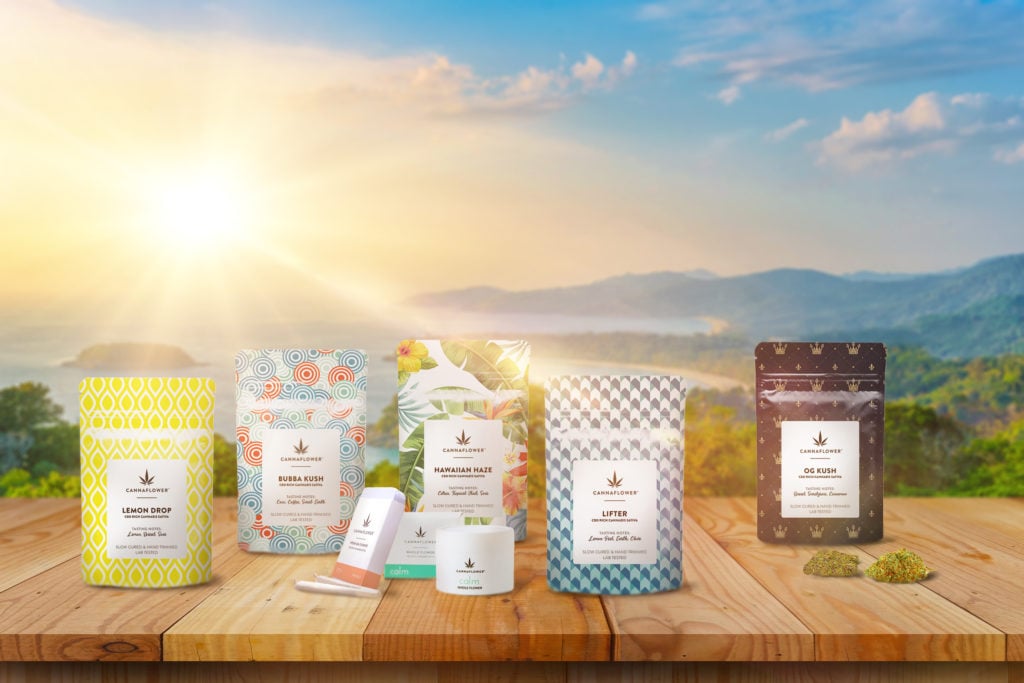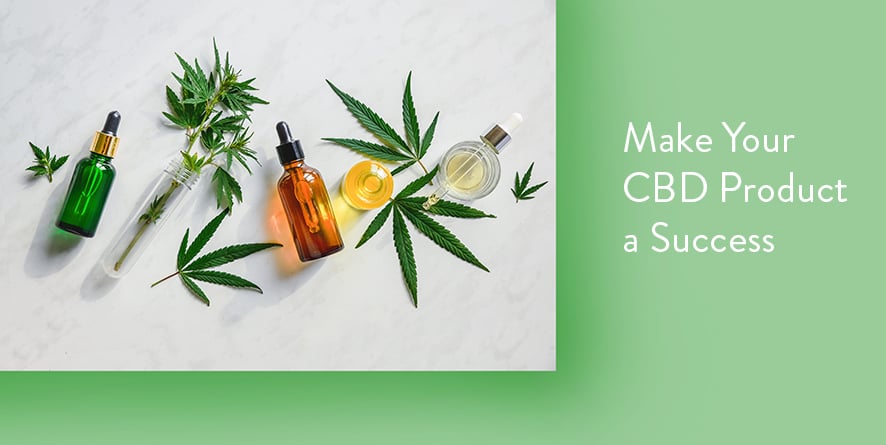You’ve dreamt up a successful CBD product, and you’re ready to cash-in. The hemp industry elevates entrepreneurs everyday in this movement now called “The Green Wave” of commerce. These days, you’ve probably seen CBD being sold somewhere, whether online or in a local shop, it’s become a nationwide phenomenon.
However, with all the different brands and products out there, making yourself stand out in the world of CBD can seem daunting. The returns seem evident, and with a little intelligent sweat equity, your chances for returns are high. We love seeing you win, so let’s get started on your hemp education!
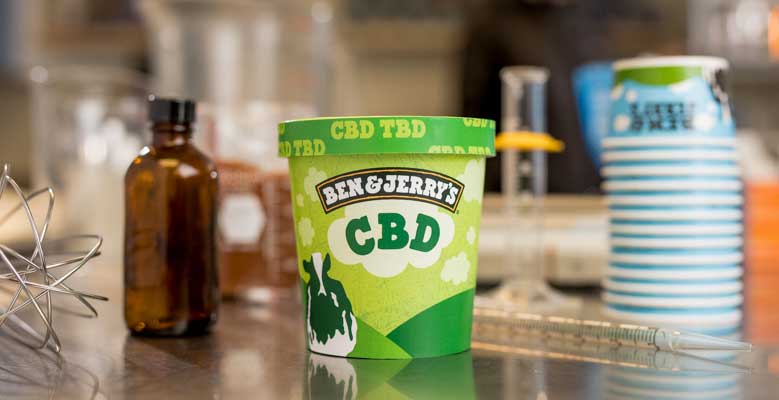
Key Terms
To fully understand how to create a successful CBD product, it is essential to familiarize yourself with a few key terms.
Hemp – hemp, as defined by the 2018 Farm Bill, is any Cannabis L. Sativa plant grown to be federally compliant with less than 0.3% THC content. Hemp is grown for it’s high CBD content and durable fibres that are used for textiles.
Decarboxylation – a chemical reaction that removes a carboxyl group from a molecule. Decarboxylation often refers to the process of heating hemp and hemp extracts to transform acidic versions of cannabinoids into their active forms. For example, hemp plants naturally contain large amounts of Cannabidiolic Acid (CBDA), which, when heated up, turns into Cannabidiol (CBD).
Bioavailability – refers to the actual percentage of a substance that the body can absorb into the bloodstream. Taking a 100mg supplement with a bioavailability of 50% would mean that the body would only absorb 50mg of the supplement.
Entourage Effect – a concept that all of the compounds in the hemp plant work together to promote their strengths and create a different physiological and psychological effect than a compound alone.
Full Spectrum – a product that contains CBD and all the other cannabinoids and terpenes at their naturally occurring quantity.
Broad Spectrum – contains mostly CBD, but also includes the other cannabinoids at a much lower quantity. Any residual THC is wholly removed from these products.
Isolate – A form of CBD where all other cannabinoids are removed.
COA – COA’s, or Certificates of Analysis, are third-party tests that provide information on the product’s safety, potency, and quality.
Endocannabinoid – Cannabinoids naturally occurring in the human body
Phytocannabinoid – Cannabinoids naturally occurring in cannabis
Now that you’re familiar with these terms, you should be able to more fully understand the jargon surrounding CBD, and the rest of this guide.
What is CBD?
Cannabidiol, or CBD, is one of the most abundant cannabinoids present in hemp. It is only one of over a hundred unique compounds that are found in hemp. However, unlike it’s arguably more famous cousin, tetrahydrocannabinol (THC), CBD does not have any psychoactive effects and will not get you “high”. You’ll need to have this definition dialed in while you reach out to customers with your new successful CBD product.
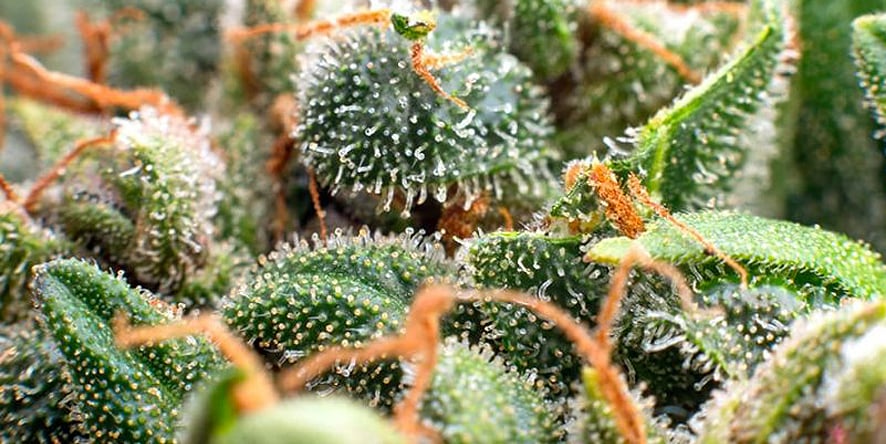
Wait, so CBD products won’t get me high?
No, CBD is non-psychoactive. As long as the CBD product has been extracted from federally compliant hemp, it should contain less than 0.3% THC and will not produce any “high” or euphoric effects.
It is crucial for your safety and wellbeing to only buy CBD from brands that provide third-party COAs of their products. These labs help make sure you are not purchasing a product that contains contaminants, heavy metals, or a mislabelled potency.
Why are people using CBD?
People are using CBD to help them alleviate their anxiety, sleep-related issues, and chronic pain. Last year the FDA approved Epidiolex (a medication whose primary active ingredient is CBD) to treat seizures associated with two forms of epilepsy.
How Does CBD Work?
Across all of our bodies, we have cannabinoid receptors which, together, comprise the endocannabinoid system. The endocannabinoid system is responsible for regulating a variety of physiological and psychological processes such as pain, mood, and memory.
The most often referred to cannabinoid receptors are the CB1 and CB2 receptors. The CB1 receptor is located across the brain and nervous system and is also found in several major organs. This is the receptor that most phytocannabinoids bond to, such as THC when it creates the “high” feeling.
However, CBD does not directly interact with either the CB1 or CB2 receptors. Instead, it modifies the receptor’s ability to bind with other cannabinoids. By doing this, it is thought that CBD encourages the body to interact with more of the body’s naturally occurring cannabinoids.
Often, you’ll hear about people having highly individualized reactions to cannabinoids. For example, CBD may make some people sleepy, whereas it may energize others. This is because everybody has different levels of naturally occurring endocannabinoids in their bodies, and some people’s endocannabinoid systems may have various sensitivities to CBD. Because of this, it is hard to predict how CBD will affect any one individual.
The Entourage Effect
If you look closely at a cannabis or hemp bud, you will notice it is covered in a subtle layer of crystalline resin. This resin contains hundreds of cannabinoids that are unique to the cannabis plant and hundreds of terpenes that give each strain it’s unique flavours and aromas.
In products like full-spectrum oils or CBD hemp flower, the consumer is exposed to this wide variety of cannabinoids and terpenoids. These compounds are thought to work together in diverse arrays of interactions that form a different physiological and psychological impact that any compound could alone.
The Legality of CBD
The answer is not clearcut.
According to Congress’s 2018 Farm Bill, purchasing hemp-derived CBD products is federally legal. This means that the source of the CBD is incredibly essential to its legality. As long as the CBD product is extracted from hemp, not marijuana, it is federally legal.
However, it is often a misconception that this means CBD is legal in all 50 states. The Farm Bill defers the legality of hemp and hemp-derived products to the states, who can decide CBD’s legal status. For example, recently, Massachusetts banned the sale of all CBD-infused food products, meaning any edibles/drinks had to be stripped from store shelves. However, this law did not affect the legality of other CBD products like oils and vapes.
Currently, the CBD market is mostly unregulated, and few methods are being used to monitor CBD companies. In response to an inflow of questions and curiosity about CBD, the FDA has announced that they are expediting their work on answering questions about CBD, and expect to report on their work by the fall of 2019
Hemp vs. Marijuana
Understanding the difference between hemp and marijuana is paramount to staying safe and legal in the confusing world of CBD.
While hemp and marijuana both come from the Cannabis L. Sativa plant, legally, they are entirely different. Marijuana is generally grown for its high THC content and is recreationally illegal in most states. Whereas hemp is considered federally legal when produced to the specifications of the 2018 Farm Bill and in participating hemp licensing states.
However, it is crucial to understand that law enforcement has little way to tell marijuana and hemp flower apart. Standard police marijuana detectors scan for phytocannabinoids in general, not just THC, and hemp will light them up like a Christmas tree. So it is essential to recognize that there are risks associated with openly using CBD products in public, and you should always use discretion.
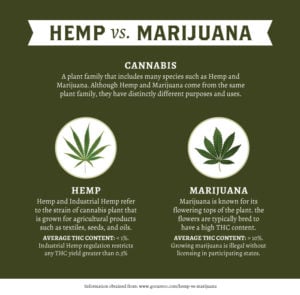
CBD and Drug Testing
If you search this question on Google, you’ll be welcomed by a world of vague answers pointing in both directions.
The most common type of drug test is a urine drug screening. In this process, a sample is collected and sent to a doctor or technician to be analyzed. In these tests, they are explicitly looking for THC and no other cannabinoids.
So, products that use CBD isolate are unlikely to make you fail a drug test. These products should contain extremely minute to absolutely no other cannabinoids, including THC. Broad-spectrum products should also be relatively safe to use in the event of a drug screening, as they should also contain virtually no THC.
Full-spectrum products, however, like oils and whole flower, pose a slightly more significant risk. These products naturally contain trace amounts of THC that could be picked up by a drug test.
It is essential to understand that there is no guarantee that you will pass a drug test when using any CBD products. Before using CBD, you should consider your risk tolerance and be mindful that the CBD industry is widely unregulated, and unscrupulous products could contain more THC than they are labelled.
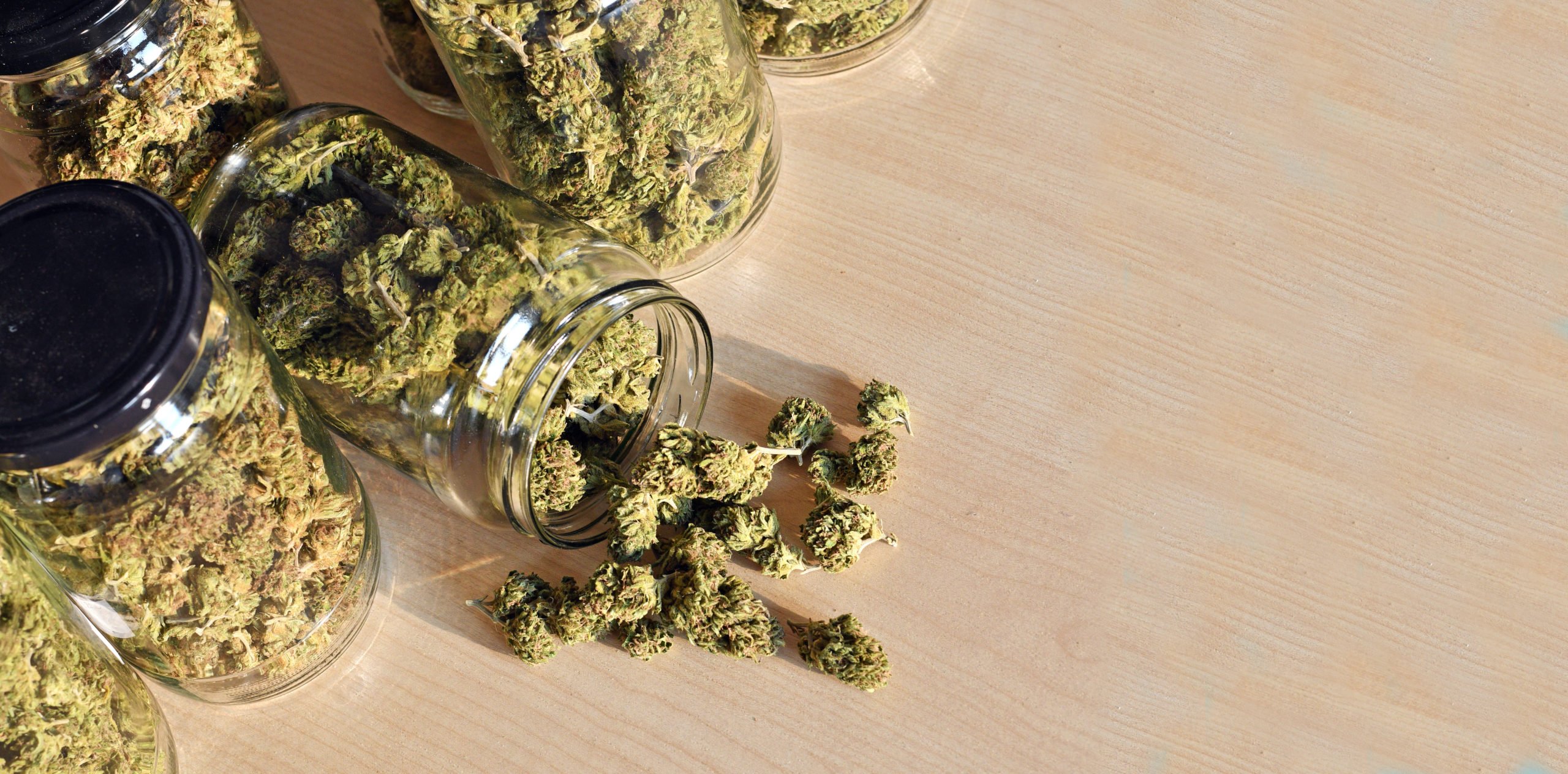
How Should I Take CBD?
Not every consumption method is the right fit for each individual, and each method has its pros and cons.
Pills, Capsules, and Edibles
Oral consumption of CBD is excellent for people who don’t like the taste of CBD oils or vaporizing. A wide variety of products are available from gel capsules, pills, flavoured gummies, and even drinks. Often, these products utilize CBD isolate, and are an excellent choice for those concerned about drug tests (you should always check what form of CBD is contained before making a decision).
However, because the CBD must pass through the digestive system before it can enter the bloodstream, it takes a while to work and offers one of the lowest bioavailabilities of CBD. Oral consumption is estimated to have a bioavailability between 4% and 20%, or for every 100mg of CBD taken orally, 4mg to 20mg will be absorbed into the bloodstream.
Sublingual
Beneath our tongues is a large vein known as the sublingual gland. When medicines/oils like melatonin, or in this case CBD, are administered under the language, they get absorbed directly into the bloodstream. CBD products taken sublingually range from oils, tinctures, lozenges, and even sprays, and are probably the most commonly accepted form of CBD.
This method works itself into the bloodstream much quicker and is reported to have a bioavailability between 12% and 35%, which is much better than oral consumption.
Vaporized
Vaporized consumption is a great way to get the most out of the CBD. Products in this category range from e-liquid to vaporizing hemp flower in a dry herb vaporizer. Vaporizing CBD hemp flower is one of the best ways to take CBD because of its efficiency and utilization of the whole plant and its compounds.
Besides straight up intravenously injecting yourself with CBD (don’t), vaporized consumption offers one of the highest bioavailabilities of any other consumption method at an estimated 34% to 56%. Because of the large surface area of the lungs, the CBD is absorbed much faster than any other means, and with much higher efficiency.
How Much CBD Should One Take?
As you can imagine, bioavailability plays a significant role in the amount of CBD you should take, but that’s not all. The amount of CBD you should consider is also highly dependent on your body weight and overall body composition.
It is best to get a recommendation from your doctor and to also discuss any potential side effects or interactions with other medications. However, if your doctor does not provide a suggestion, it is always best to start low and slow. As a baseline, most people should start out taking less than 20mg sublingually and gradually increasing the dose as they see fit.
Websites like CBD Dosage Calculator also provide online calculators that can help you determine what dosage of CBD you should try.
How to Prove Safety with CBD
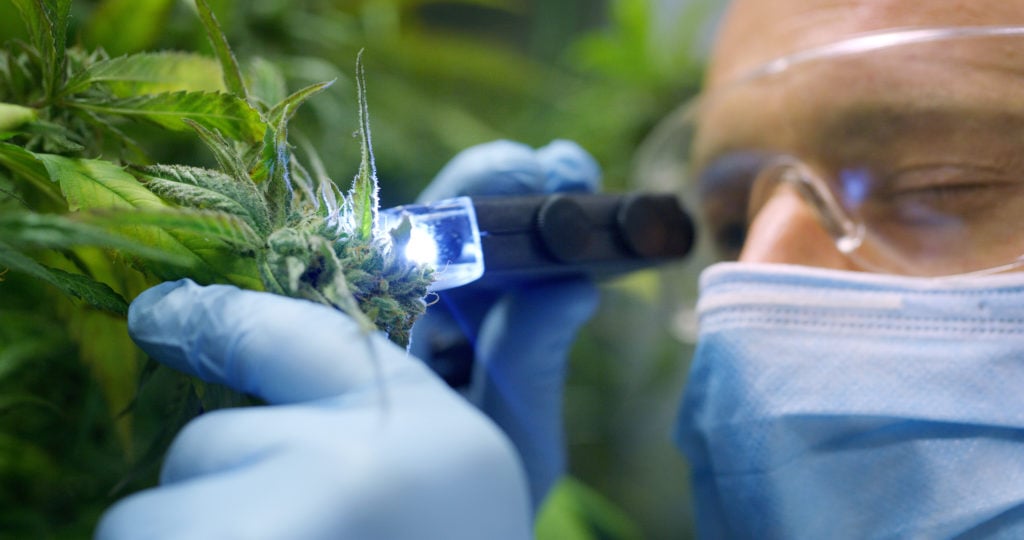
As stated earlier, the CBD market is mostly unregulated, and there is a myriad of CBD products available to choose from, and not all of them are necessarily safe or honest.
Here are some excellent guidelines to follow when marketing your CBD product:
- Ensure the product provides third-party, up-to-date, and accurate COAs (Certificates of Analysis)
- Ensure it was grown domestically, as hemp grown overseas may not be as stringently tested
- Ensure the product provides an ingredients list, and how much CBD it contains
- Avoid products that make extravagant health claims. You should never trust a brand that claims to cure “X” ailment, as this is not only unethical but also illegal under FDA guidelines.
- Ensure that your company has an online presence. If your company doesn’t have any online presence, customers will probably avoid it.
The most important steps to staying safe with CBD can be summed up into three words, do your research. Ensure that your brand presents as reputable, and make sure you’re in compliance with your local laws before selling any CBD products. Additionally, recommend that customers treat CBD as any other OTC medication and that they should consult their doctor before beginning use.
The CBD Market
With all the hype around CBD lately, it’s no shock that many large retailers have hopped on the bandwagon and have begun to offer CBD products. Health and wellness stores such as CVS, Walgreens, Rite-Aid, and even GNC are lining their shelves with CBD products in select states. Moreover, even some beauty and apparel stores such as Ulta and Urban outfitters are now selling CBD.
It should come as no surprise that farmers across the U.S have taken notice of CBD’s popularity and have begun to grow more hemp crop in 2019. After all, soybeans are estimated to net $62 to $194 an acre, whereas hemp is expected to net up to $60,000 an acre.
According to Votehemps annual crop report, the amount of U.S land being used for hemp production has increased by 800% between 2016 and 2018. While we don’t know the size of this year’s crop, Colorado alone is estimated to have at least 50,000 acres of hemp this year, an increase of over 200% since 2018.
Here are some more key takeaways from Votehemp’s annual crop report (comparing 2016 to 2018):
- State hemp licenses increased by over 400%.
- The average size of hemp farms doubled from 11.8 acres to 22.
- Ten more universities began conducting research into hemp.
- Twelve more states have enacted hemp production bills.
With CBD’s popularity booming in the past year, we can expect to see these numbers to continue to increase. BDS Analytics, a cannabis market research & data analytics company, released a report estimating that the U.S. CBD market will reach $20 billion in sales by 2024. For comparison’s sake, the size of the over-the-counter pain medication industry only generated $18 billion of revenue in 2018.
Of course, there are also those who believe that the CBD market won’t continue its colossal growth. After all, BDS analytic’s report estimates a compound annual growth rate of nearly 50%, which is almost unheard of. Some people are speculating that the CBD market will crash in 2020. This is because more farmers than ever are growing CBD-rich hemp, which may flood the market and decrease the price of CBD and push many companies out of the market.
The Future of CBD and Cannabis
Cannabis research and cultural acceptance have been seeing unprecedented growth in the past few years. In the U.S alone, there are over 250,000 devoted to just handling the plants, never mind all of the jobs that are being created for sub-categories of the cannabis industry like production and research equipment. As cannabis becomes more mainstream and accepted, and laws and regulations are solidified around it, we can hope to see the industry continue to grow and innovation to continue to accelerate.
We hope that this article has helped you understand the world of CBD better. We wish you all the best as you launch out on your own with your vision of success with your CBD product and brand! Keep us posted on your adventure!
Cannaflower™ is Here for You
Buying premium CBD flower does not need to overwhelm you. Like all of the best things in life that can be enjoyed, we feel the best CBD hemp flower experience is priceless. The process in deciding what flower and what strains are right for you should be painless. We hope that some of the highlights we shared here will help you on your way. Remember, if you have any questions, or just want to talk about CBD flower, we are always delighted to hear from you!
